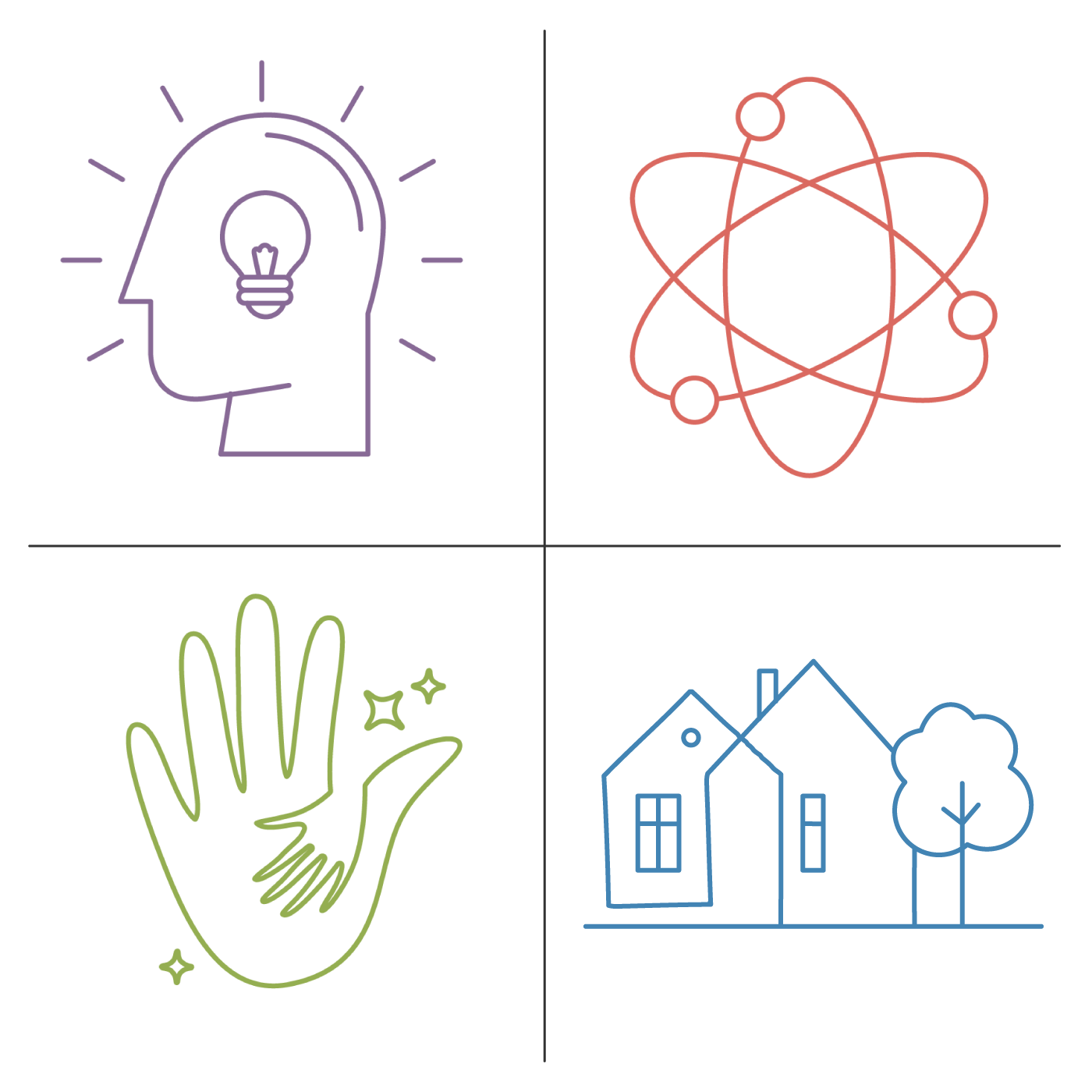
Integral Theory is the result of forty years of study and research by the American philosopher Ken Wilber starting to be published with the book "The Spectrum of Consciousness" written in 1973, when he was just 23 years old. Since then Wilber has written more than 25 books, in which he has deepened and refined his initial intuition.
To sum up, Integral Theory is a meta-theory in which every form of discipline, knowledge and experience combines to form a coherent framework, an integral map called AQAL. Today, Integral Meta-theory is taught and applied throughout the world in various fields: ecology, medicine, economics, personal growth, science and spirituality.
We live inside four main dimensions: the psyche, that is everything we experience internally; the body, matter, energy, that is everything we can measure and catalog; relationships, sentimental, familiar, of work, cultural; the environment, society, nature, the cosmos. None of these areas can be isolated, none is more important than the other, they are all connected and interdependent, and that is why they develop and evolve together.
The map of the four quadrants is not an abstract theoretical tool, in everyday life it serves to remind us to keep always in mind the essential perspectives of each situation. Our emotions, health, relationships and social life are always present and interconnected and the quality of life evolves with this awareness.


The acronym AQAL refers to the five essential elements of the integral vision of the American philosopher Ken Wilber. A comprehensive and deep view of reality recognizes and includes all these perspectives as connected and interdependent.
QUADRANTS
The fundamental perspectives through which we live and observe reality are: objective, subjective, singular and plural. Any attempt to reduce or deny even a part of it inevitably leads to a gap in the assessment of the situation.
LINES
Human intelligence develops and grows along more than a single path: recognizing and cultivating multiple intelligences is essential to fully experience human potential.
LEVELS
Every aspect of reality develops along a process of progressive stages nested one into the other. Each step integrates and enriches the previous one, growing in complexity.
STATES
During the day anyone goes through many states of consciousness: waking, dreaming, sleeping are common to all but there are many others. No exhaustive description of the human condition can ignore its importance.
The typological characteristics can be of a scientific, psychological, cultural or systemic nature. What the types have in common is their accent on being gathered into basically stable configurations rather then configure dynamic processes.